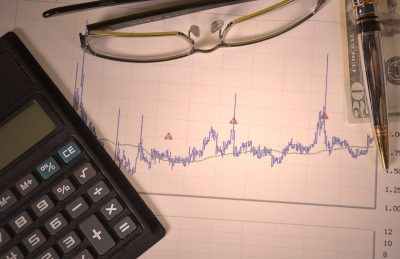Inventing a product or starting a business, in theory, should be a blank slate: making something out of nothing, answering a question unaddressed. However, researchers have illustrated how the journey to innovation is not as equal as it may seem.

The Boston University Technology Development, BU ARROWS and BU Women’s Guild co-hosted an event Friday investigating equity in innovation. The webinar, “Confronting Gender Bias in Investor Q&A: Research and Practice for Female Innovators,” featured Dana Kanze, an assistant professor of organizational behaviour at London Business School with a Ph.D in philosophy.
During the Q&A portion, she said her research revealed female investors not only receive less funding, but different types of funding in early stages.
“Women on their [executive] teams that receive venture funding tend to be older and more established, and therefore received later stage funding,” she said, “while less often receiving the early stage … funding.”
She said her work investigates these disparities in early funding — female entrepreneurs currently only make up 2% of venture funding despite leading nearly 40% of U.S. businesses.
“These findings point directly to prescriptions for first and foremost investors, rather than for the women seeking out early stage and seed stage funding,” she said at the event.
More broadly, Kanze researches inequality in the workforce, specifically in regard to the gender of business founders. Her TEDxPeachtree talk, “The Real Reason Female Entrepreneurs Get Less Funding,” has exceeded 2 million views.
Her seminar at BU specifically discussed the strategies female innovators can employ to improve relationships with investors and ways to defeat bias.
Nevena Dimova, director of business development for life sciences at the BU Technology Development Office, said the office co-hosted and helped organize the event.
Dimova said her work involves assisting the University in deciding which inventions it issues a patent to. She said her work undoubtedly involves investigating equity, as well as helping bridge the gender gap.
“We’re seeking to help understand what kind of gender gap there is in the innovation pipeline at BU and how that sort of differs from maybe in universities nationwide,” she said. “But more importantly, we’re seeking to identify resources that may be helpful in overcoming this gender bias.”
She said the diversity committee within the office has been working on providing resources for female innovators for the past two years.
Dimova said raising awareness about the gender gap in innovation with seminars like Friday’s is important because implicit biases are deeply ingrained in the industry — including between fellow female innovators — which Kanze discussed at the event.
“It’s not only coming from male inventors,” she said. “It is important to raise awareness, and with that, hopefully start putting the first steps in towards making change.”
She added that the industry needs to raise awareness so female innovators can find a solution to the continued inequalities they face.
“It’s important for the people who this bias is directed against, the female innovators, so that they understand that it’s not necessarily something they alone experienced, but it’s a much wider spread phenomenon,” Dimova said.
Fatima Dantsoho, a senior in the College of Engineering, is the president of BU’s chapter of the National Society of Black Engineers — a national organization working to support Black students in the field and help them excel. She said she sees bias not necessarily in funding, but in assumptions about women, especially as a Black woman.
“We’ve had situations where, based off of some of our members experience, you’re in a group, and you’re probably the team lead, but when you go to present or speak to investors, they automatically go to the guys in the group,” Dantsoho said, “thinking they are the leaders of the project.”
Through NSBE, however, Dantsoho said she’s been able to find many female mentors in STEM, particularly within NSBE’s leadership. In BU’s own chapter, she said the majority of the board is led by women.
“I’ve had the privilege of meeting women in leadership positions, learning from them,” she said. “It’s something that’s been embraced.”
Dantsoho said she would encourage any women or minority in STEM to continue to assert their right to be in the field and seize opportunities.
“As a woman in STEM, you have to be outspoken, and you have to believe in yourself because no one else will,” she said. “Be confident.”
Yiran Yu contributed to the reporting of this article.


















































































































